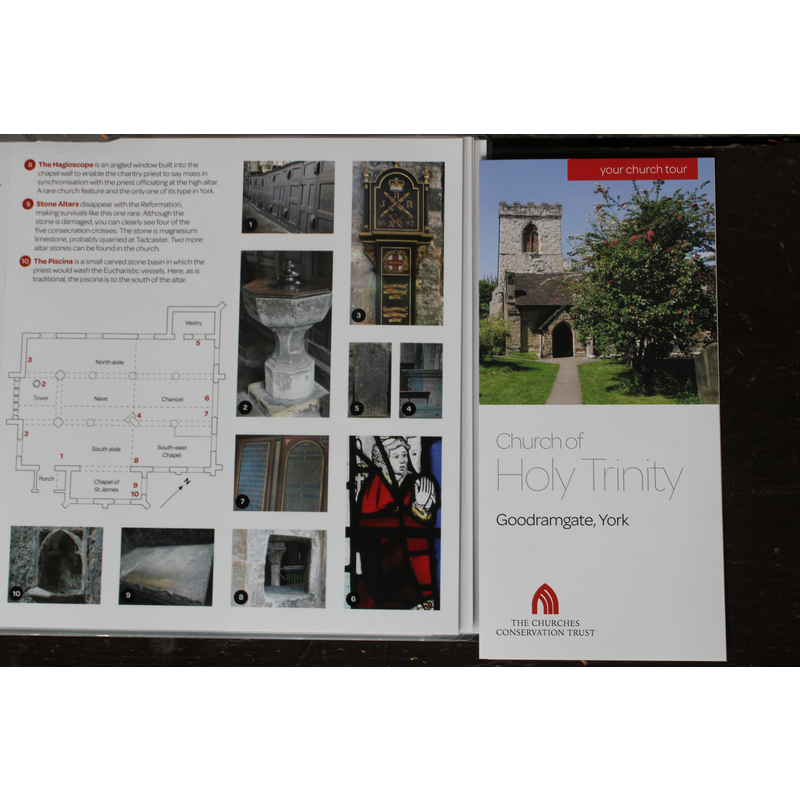York No. 7, Holy Trinity Goodramgate / Gotheramgate / Eboracum / Eburacum / Eburākon / Eoforwic / Everwic / Jórvík
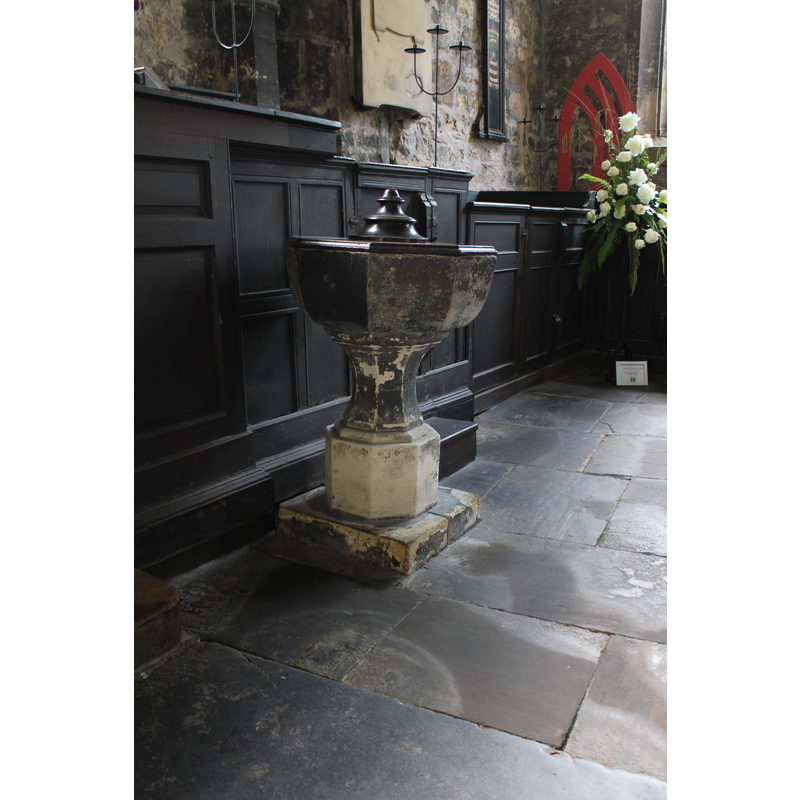
Image copyright © Baptisteria Sacra Index, 2023
CC-BY-NC-ND-4.0
Results: 10 records
view of font and cover in context
view of font and cover
view of basin - interior
view of basin - interior
view of church exterior - southwest end
Copyright Statement: Image copyright © Johnlp, 2009
Image Source: digital photograph taken 3 May 2009 by Johnlp [http://en.wikipedia.org/wiki/File:Holy_Trinity_Goodramgate.jpg] [accessed 14 July 2013]
Copyright Instructions: CC-BY-SA-3.0
view of church interior - nave - looking east
view of church interior - plan
information
view of font cover
INFORMATION
Font ID: 14023YOR
Object Type: Baptismal Font1?
Date Visited: 2013-07-01
Font Century and Period/Style: 11th - 12th century, Transitional
Church / Chapel Name: Parish Church of the Holy Trinity Goodramgate [redundant since 1971]
Font Location in Church: [cf. FontNotes]
Church Patron Saint(s): The Holy Trinity
Church Notes: "Founded in the first half of the 12th century, its architecture is that of the 13th and 14th centuries, with woodwork and pews of the 17th and 18th centuries. The church is a good example of how a church was arranged after the Reformation.
[...] The church dates back to the 12th century, although the current building owes rather more to the 13th-15th centuries: although part of the Chancel dates from the 12th century, the South Aisle and Chapel date from date from 1340, the Tower and North Aisle were built in the first half of the 15th century. The box pews are recorded as being repaired in 1633, and new ones added in 1700-1725. The pulpit dates from 1695" [source: http://en.wikipedia.org/wiki/Medieval_parish_churches_of_York#Holy_Trinity.2C_Goodramgate [accessed 14 July 2013] -- church has been redundant since 1971 - in he care of the Churches Conservation Trust since 1972
Church Address: 70 Goodramgate, York, North Yorkshire YO1 7LF, UK
Site Location: North Yorkshire, Yorkshire and the Humber, England, United Kingdom
Directions to Site: Located just W of Goodramgate, E of the Cathedral
Ecclesiastic Region: Diocese of York
Historical Region: Hundred of York
Additional Comments: disappeared font? (the medieval one)
Font Notes:
Click to view
There are twelve entries for York in the Domesday survey [https://opendomesday.org/place/SE6052/york/] [accessed 8 August 2019] eight of which mentions a church in it [cf. infra]. The entry for York churches in the Victoria County History (York, 1961) notes: "Eight churches are mentioned in Domesday: [...] three (St. Crux, St. Cuthbert, and Holy Trinity, Micklegate) may be certainly identified, and four (All Saints, Pavement, St. Andrew, St. Andrewgate, St. Martin, Coney Street, and St. Mary, Castlegate) with considerable probability; one is not named [...] Only of one church, and that an early one, is the foundation date certainly known: St. Olave's. [...] The church of HOLY TRINITY, Goodramgate, is mentioned in charters of 1082 and 1093 as part of the foundation grant of Durham Cathedral Priory. Both charters are said to be forgeries but an early foundation for the church is likely. [...] The church was confirmed to the priory in a document dated between 1121 and 1128 and in another of 1153 to c. 1160. [...] The prevailing style is of the 15th century; the nave was enlarged by arcading and throwing out side aisles probably early in the 14th century. The west tower is of later construction;" no font mentioned in the VCH entry. Glynne's visit to this church probably in 1825, notes: "The font [...] an octagonal cup". There is no mention of a font in Parker (1847). Sheahan & Whellan (1857) note: "The font is an octagonal basin ". The RCHM (York, 1962- ) illustrates the font and cover; it dates the font to the early-18th century; the cover, based on churchwardens' accounts, to 1787. An April 2008 report by the Churches Conservation Trust [http://yorkholytrinity.org.uk/wp-content/uploads/history.pdf] [accessed 27 November 2008] lists an "Early 18th Century Octagonal font on octagonal waisted stem" and a "1787 Oak font cover" in this church. On-site notes: the baptismal font is octagonal all over and chalice-shaped; rounded underbowl; stem octagonal and tapering towards the middle, then splaying out towards the stubby octagonal lower base; on a tiny quadrangular plinth. The wooden cover has a flat octagonal base with a moulded finial; of 1787, probably contemporary with the font. [NB: the fabric of this church goes back to the 13th century, and there is documentary evidence of an earlier church here ca. 1125, according to the RCHM (ibid.), but we have no information on the earlier font(s) of this church]
COORDINATES
UTM: 30U 625944 5980950
Latitude & Longitude (Decimal): 53.961552, -1.080301
Latitude & Longitude (DMS): 53° 57′ 41.59″ N, 1° 4′ 49.09″ W
MEDIUM AND MEASUREMENTS
Material: stone
Font Shape: octagonal, mounted
Basin Interior Shape: round
Basin Exterior Shape: octagonal
Rim Thickness: 8-9.5 cm*
Diameter (inside rim): 59 cm*
Diameter (includes rim): 73-78 cm*
Basin Depth: 23 cm*
Basin Total Height: 27 cm*
Height of Base: 69 cm*
Font Height (less Plinth): 96 cm*
Font Height (with Plinth): 106 cm*
Notes on Measurements: * [measurements of the 18thC font] BSI on-site
LID INFORMATION
Date: 1787
Material: wood, oak
Apparatus: yes
Notes: [cf. FontNotes]
REFERENCES
- Victoria County History [online], University of London, 1993-. URL: https://www.british-history.ac.uk.
- Glynne, Stephen Richard, The Yorkshire notes of Sir Stephen Glynne (1825-1874), Woodbridge: The Boydell Press; Yorkshire Archaeological Society, 2007, p. 456
- Great Britain. Royal Commission on Historical Monuments (England), An Inventory of the Historical Monuments in the city of York, London: H.M. Stationary Office, 1962-, vol. 3: lii and pls. 28(5), 118, 119; vol. 5: 8
- Sheahan, James Joseph, History and topography of the city of York; the East Riding of Yorkshire and a portion of the West Riding […], Beverley: printed for the publishers by John Green, Market Place, 1857, vol. 1: 543
![18th-century font [cf. FontNotes]](/static-50478a99ec6f36a15d6234548c59f63da52304e5/compressed/1130714075_compressed.png)
![18th-century font [cf. FontNotes]](/static-50478a99ec6f36a15d6234548c59f63da52304e5/compressed/1130714079_compressed.png)
![18th-century font [cf. FontNotes]](/static-50478a99ec6f36a15d6234548c59f63da52304e5/compressed/1130714078_compressed.png)
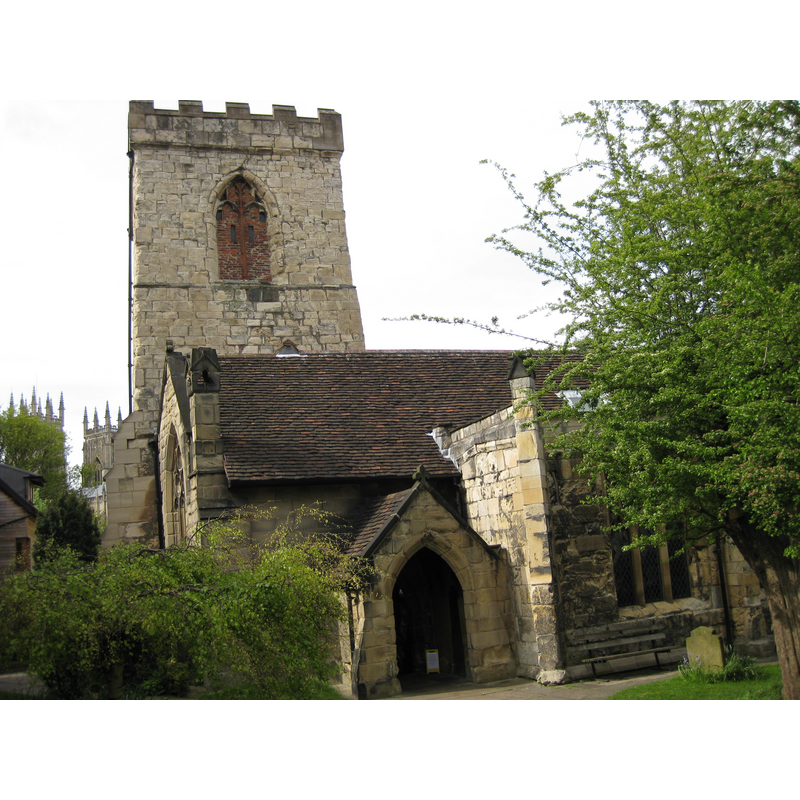
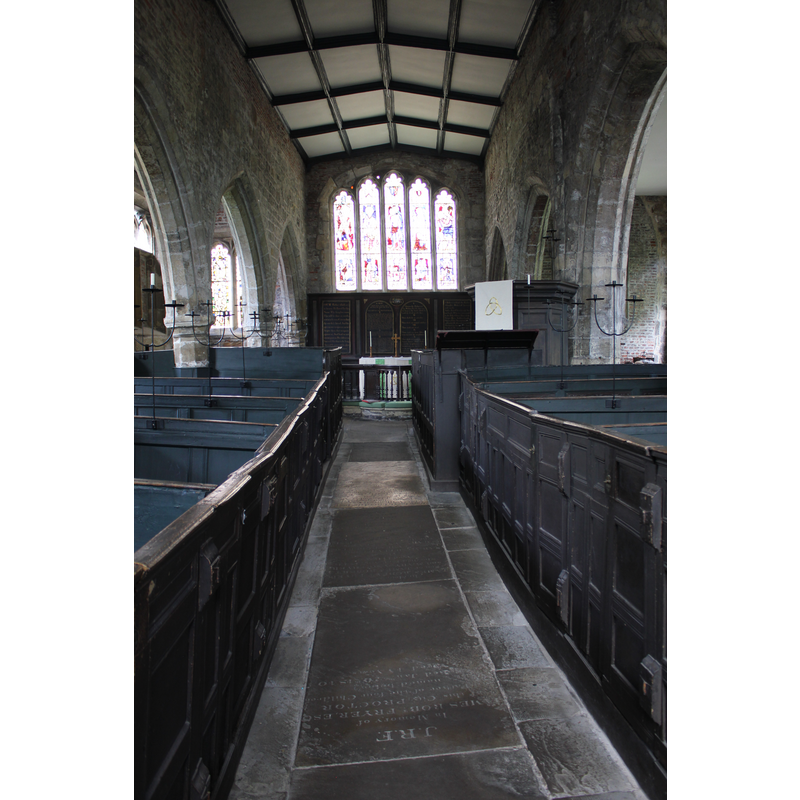
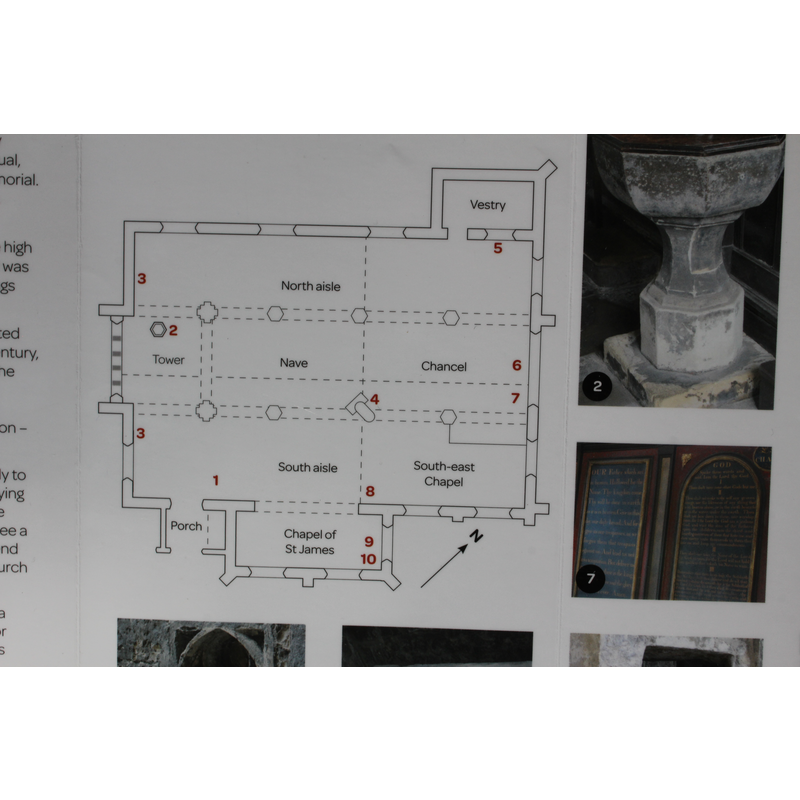
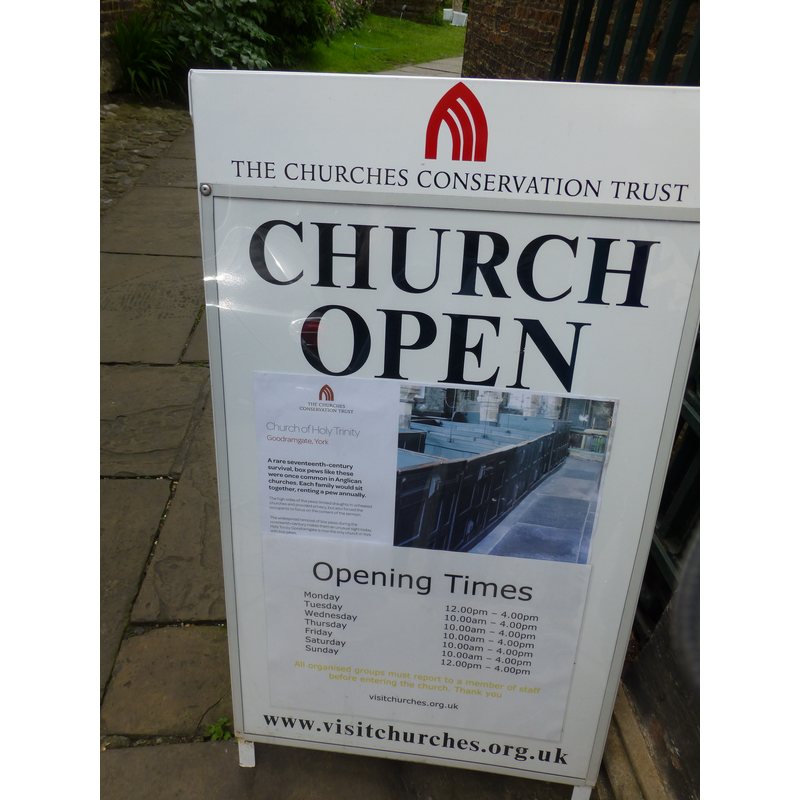
![18th-century font-cover [cf. FontNotes]](/static-50478a99ec6f36a15d6234548c59f63da52304e5/compressed/1130714080_compressed.png)
